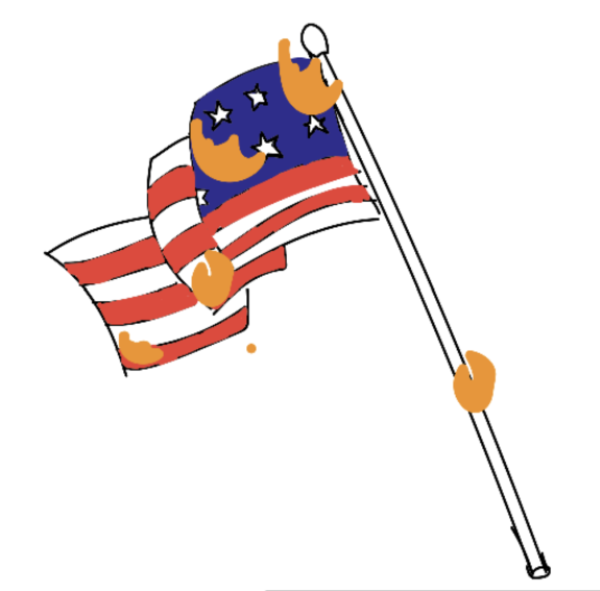Should Russia Participate in the Paris 2024 Olympic Games?
We probably all know about the Russian invasion in Ukraine which is currently ongoing. Several countries have sanctioned Russia, and now, with the Paris 2024 Olympic Games fast approaching, the question as to whether Russia should be allowed to participate or not has come up in interactions between nations. Several countries have asked that the International Olympic Committee (IOC) exclude Russia and Belarus (who has been supporting the Russian invasion) from the games, but the IOC worries that this would be considered discriminatory and would go against the Olympic Charter. Some countries have even threatened to boycott the games if the two countries participate, so the question remains: Should Russian and Belarussian athletes be allowed to participate in the Paris 2024 Olympic Games?
The governments of 34 countries (including host country France) have asked that the IOC exclude Russia and Belarus from the games. “We have strong concerns on how feasible it is for Russian and Belarusian Olympic athletes to compete as ‘neutrals’ — under the IOC’s conditions of no identification with their country — when they are directly funded and supported by their states,” said the countries. Several sports organisations all over the world are still trying to find a way to sanction Russia while maintaining the principle of fairness and individual opportunity. “In Russia and Belarus, sport and politics are closely intertwined. The strong links and affiliations between Russian athletes and the Russian military are also of clear concern. Our collective approach throughout has therefore never been one of discrimination simply on the basis of nationality, but these strong concerns need to be dealt with by the IOC.” The countries also mentioned that Russia and Belarus placed themselves in the position that they are in. “We also note that Russia and Belarus have it in their own hands to pave the way for their athletes’ full return to the international sports community, namely by ending the war they started.” British sports minister, Lucy Frazer has spoken up about her own countries’ concerns with the possibility that Russia and Belarus could be included in the games. “Terror and Olympism are two opposites, they cannot be combined. I made the UK’s position very clear: As long as Putin continues his barbaric war, Russia and Belarus must not be represented at the Olympics.” Estonian Prime Minister Kaja Kallas said “I think that our efforts should be on convincing our other friends and allies that the participation of Russian and Belarusian athletes is just wrong.”
Ukrainian President Volodymyr Zelenskyy has openly said that he does not want Russia and Belarus and said that it would be a “manifestation of violence”. Ukraine has threatened to boycott the games if Russia and Belarus are allowed to compete, which could lead to the biggest split in the Olympic Movement since the time of the Cold War, where 65 nations refused to compete. Kaja Kallas, Prime Minister of Estonia has supported Ukraine, saying that “boycotting is the next step. I think people will understand why this is necessary.” 228 Ukrainian athletes and coaches died as a result of the Russian aggression. Zelenskyy has said to French President Emmanuel Macron that not banning Russian and Belarusian athletes would be showing that “terror is somehow acceptable.” Zelenskyy has been criticising the IOC, who are the main decision makers in this situation saying that “If there’s an Olympics sport with killings and missile strikes, you know which national team would take the first place” and “This cannot be covered up with some pretended neutrality or a white flag. Russia is now a country that stains everything with blood, even the white flag.”
Responding to the controversy, the IOC has stated that Russia and Belarus will be able to compete in the 2024 Olympics as neutral with no national anthem or flag. The inclusion of Russian and Belarusian athletes is based on a UN resolution against discrimination within the Olympic movement. The Russian and Belarusian athletes can compete under 2 circumstances: “Only athletes who fully respect the Olympic Charter would participate. This means in particular: first, only those who have not acted against the peace mission of the IOC by actively supporting the war in Ukraine could compete. Second, only athletes who fully comply with the World Anti-Doping Code and all relevant anti-doping rules and regulations would be eligible. There must be individual checks carried out for all entered athletes.” said the IOC. Olympic President Thomas Bach said that Ukrainian athletes “know how much we share their grief, their human suffering and all the effort we’re taking to help them” but that “banning athletes on the basis of their nationality would be direct discrimination”. Therefore, “The only option that could be considered are individual, neutral athletes like we have seen last year at the French Open in tennis and recently again at the Australian Open in tennis and in other professional sports.” Bach insisted the mission of the Olympic Games was “a peace mission”. History would show “who is doing more for peace, the ones who try to keep lines open and communicate, or the ones who want to isolate and divide.” In response to the controversies by the 34 governments, the IOC said “It is not up to governments to decide who can take part in which sports competitions, because this would be the end of international sports competitions and world championships and the Olympic Games as we know it.” In regards to the boycott the IOC has responded saying “this threat of a boycott only leads to further escalation of the situation, not only in sport, but also in the wider context. It is regretful that politicians are misusing athletes and sport as tools to achieve their political objectives.” “Why punish athletes from your country for the Russian government starting the war?” they added. The IOC aimed to “find a solution that is giving justice to the mission of sport, which is to unify, not to contribute to more confrontation, more escalation,” said President Bach. “We’re supporting the 3,000 members of the Ukrainian Olympic community to have a strong Ukrainian team in Paris.”
The mayor of Paris Anne Hidalgo said that there should be no Russian delegation allowed at the Paris 2024 Olympics. She respects and acknowledges that the final choice is up to the IOC, but has said that she wishes that all Russian athletes are banned “as long as there is this war, this Russian aggression on Ukraine.” “It is not possible to parade as if nothing had happened, to have a delegation that comes to Paris while the bombs continue to rain down on Ukraine.” The head of the Paris 2024 organising committee, Tony Estanguet, said “My job is to make sure that all athletes who want to participate will be offered the best conditions in terms of security, to offer them the chance to live their dream.”
There is a big debate between the IOC and Ukraine and Ukrainian allies as to whether Russia and Belarus will be able to participate in the Paris 2024 Olympic Games. Although both sides make valid points there can only be one final solution, and not much time left to make the decision. So the IOC is left with the question, do they break the Olympic Charter and exclude Russia and Belarus from the games, or do they risk a boycott, putting the success of the Olympic Games at risk? The ongoing controversy makes it unclear whether or not Russian and Belarusian athletes are going to be present at the Paris 2024 Olympic Games, and all the controversy will make the final decision a lot more complicated to come to.
Hi, My name is Agnese and I am a student in Year 11. This is my 4th year at ISL and my 1st year as a writer for The High. I am Italian and have been writing...




